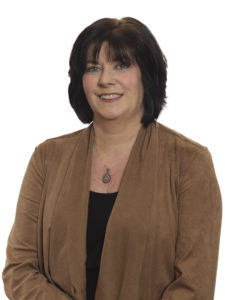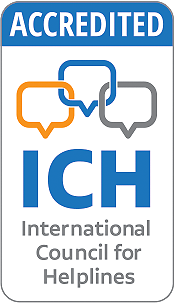
Tonia Ahern, Family Education Workshop Facilitator, NJ Connect for Recovery
Addiction, like any other disease, is not something you automatically know how to deal with when you become a parent. In a time when your child needs you the most, it’s important to remember that there is nothing wrong with seeking help. For ten years, my son, Roger, struggled with substance use disorder, and for ten years my husband and I felt helpless. We desperately wanted to help our son, but we didn’t know how. The strain on our family was significant, and looking back I wish I had access to the vital resources that NJ Connect for Recovery, a free, confidential call line focused on helping individuals and families coping with substance use disorders achieve recovery. It would have provided me the tools to have gotten help for my son sooner, and provided help for myself and the rest of my family too.
Addiction recovery is not a simple process—my son overdosed nine times before he finally overcame his substance use disorder and entered recovery. It’s important to recognize that recovery is a journey. While Roger is in recovery today his journey is not over. The process can be long, and often times excruciating, straining both the individual and their loved ones who desperately want to help them. Nevertheless, recovery is worth the effort and family support can be the strongest tool in aiding a substance user achieve recovery.
My experience coping with my son’s addiction has inspired me to work with other families to make sure they are aware of the resources that are available to them. As an NJ Connect for Recovery Family Education Workshop facilitator, I have been able to teach families effective ways to help their loved ones coping with substance use disorders. I truly believe that taking an active role in my son’s recovery process helped get him the treatment he needed to get clean and sustain his recovery today.
An important aspect of addiction recovery is positive, open communication among family members. At our Family Education workshops, we teach families the CRAFT Method, which stands for Community Reinforcement Approach and Family Training. The CRAFT Method helps families address challenges and better communicate with their loved one.
The CRAFT Method is a set of techniques derived from the community reinforcement approach (CRA) and applied to the substance abusing population. This method does not target the person struggling with addiction, but rather, it targets concerned family members and friends, so they may help in the recovery process.
This method helps teach concerned significant others (CSOs) important techniques they can use to assist identified patients (IPs). Overall, the approach works by taking the beliefs and values of the client into consideration to develop an appropriate treatment plan. The CRAFT Method can help CSOs by:
- Teaching them to modify their usual behaviors, reactions, and expectations toward the IP
- Reducing or eliminating current substance use and addictive behaviors in the IP
- Helping to motivate the IP to seek treatment
- Showing them the importance of self-care as they manage concerns with the IP to maintain or rebuild feelings of happiness
A study conducted by the Center on Alcoholism, Substance Abuse, and Addictions (CASAA) at the University of New Mexico, showed 71% of CSO’s were successful in encouraging their IP’s to seek treatment within 6 months of using the CRAFT Method, with 64% of IP’s attending five or more sessions. CSOs who were parents were significantly more successful in engaging their IP to enter treatment than were non-parents.
No one has better information about their loved one’s behavior patterns than those who are closest to them. This program emphasizes that learning new skills and applying them to the knowledge they already have about the IP can increase the chance of getting the substance user to enter a treatment program.
Recovery can be an ongoing process for the whole family, but with positive and open communication coupled with comprehensive treatment it can be achieved and sustained. To help guide your child or loved one through the treatment and recovery processes, attend one of many statewide NJ Connect for Recovery Family Education Workshops to learn more or visit www.njconnectforrecovery.org/recovery-resources/ to get started.
NJ Connect for Recovery’s Family Education Workshops provide a safe environment for families, teach concrete skills and communication techniques, and present evidence-based strategies for addressing substance use disorders and recovery. Topics vary each week to help provide families with a wide range of tactics to help in the recovery process. For individualized guidance and immediate support, call NJ Connect for Recovery at 855-652-3737 or visit www.njconnectforrecovery.org.

